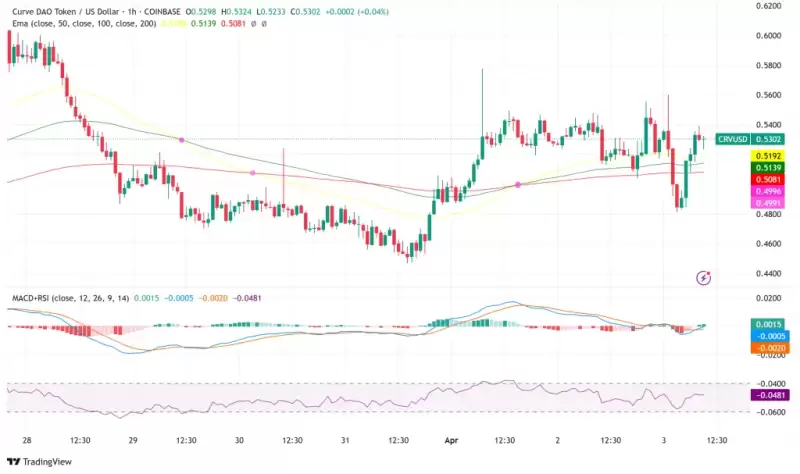 |
|
 |
|
 |
|
 |
|
 |
|
 |
|
 |
|
 |
|
 |
|
 |
|
 |
|
 |
|
 |
|
 |
|
 |
|
Cryptocurrency News Articles
Child Labour: The Plight of Boys and Girls Trapped in Ondo Cocoa Farms
Nov 22, 2024 at 08:16 pm
The sleepy communities of Bolorunduro, Fagbo, Igushin, and Bagbe in Ondo East and the West Local Government had the largest cocoa-producing capacity

In Ondo East and West local government areas, children are engaged in hazardous labour on cocoa farms, often for minimal pay or to assist their parents.
According to National Bureau of Statistics data, 52.6% of children in Ondo West engaged in hazardous cocoa farming work, while 57.4% of those aged 5-14 in Ondo state skip school for cocoa farms.
Students who spoke with BONews with the consent of their teachers and parents report that the boys are saddled with the responsibility of fumigation while girls pod the cocoa and pack it out of the farms. They also confirmed that they work as labourers to earn additional money.
19-year-old Adetinoye Tobi sighted in one of the farms packing palm fruit seedlings. When questioned why he was not in school, he stated that he was on the farm to work as a labourer, packing palm fruits and clearing the cocoa farm.
13-year-old Adio Balikis and 13-year-old Awoyemi Emmanuel of Bagbe Ilu Nla High School also said that they worked as labourers to fumigate the cocoa with chemicals against pesticides to earn money.
So were the stories of other students in the schools visited who recounted their experiences on the hazardous work they engaged in to earn a living.
Speaking about the state of absenteeism in schools and how children engage in labour work, Mr Adejana Isaac, a teacher at Igushin Community Grammar School, said,
“During the dry season when there is no harvesting of cocoa, students are always in school, but during the cocoa harvesting period, about 80% of students are always absent.”
In all the communities visited by the reporter, schools are a shadow of themselves due to poor access roads and poor infrastructure. The schools lacked essential facilities like laboratories and libraries.
Also, during the reporter’s visit to the farmsteads in the four communities in Ondo East and West, one major challenge in accessing the farms was the dangerous and poor road network. It rained a day before the reporter’s visit, and the roads were largely inaccessible to road users, especially motorcyclists. The reporter fell in the mud on her way, which indicates some of the challenges the labourers regularly encounter in accessing the farmlands.
“The roads are bad, the pests are destroying our cocoa, the chemicals we use are expensive, and most of the time after harvest, moving the goods is challenging. That’s why we often engaged children in labour work to maximise profit,” Ariyo Benjamin, a cocoa farmer who rented his farm for a year, said.
According to Ariyo, labourers are paid N4000 Naira per day and N350,000 per year, unlike before when it was cheaper and the climate challenges were not as challenging as they are now.
The Alara of Igunshin land, Oba Lawrence Adelaisoye, expressed frustration with climate challenges affecting cocoa production and the huge sums of money charged by labourers, which are pushing farmers to engage children in their farms.
“Our farmers are suffering, the road to our farms has been destroyed by flood, and the poor road network has made the charges from labourers very exorbitant.
“We send our children to school, but we don’t allow them to go to the farm on school days because the ILO Acclawa project and some NGOs were in the community to sensitise the farmers on the danger of child labour, and we have stopped doing that,” Oba Adelaisoye said.
Baale of Bagbe and Bolorunduro also shared their thoughts about how rural communities have been suffering from neglect in the area of infrastructure development, and the only thing they have is their family to assist them in their work.
They said their farmers produced large quantities of cocoa and kola nuts for local and international buyers.
The Ondo State Child Rights Act, passed into law in 2007, protects the rights and privileges of children aged 0 to 16. The law stipulates that a child has the right to survival and development.
In an interview with a human rights lawyer in Akure, Barrister Debbie Sagba said the Ondo State Child Rights Law 2007 stipulates that no child shall be subjected to any forced or exploitative labour.
“It is against the law for a child to work in any capacity as a labourer except where he or she is employed by a member of his or her family on light work of an agricultural, horticultural, or domestic character,” Barrister Sagba said.
“Anyone who contravenes any provision of subsection 21, (1,2 ) of the section commits an offence and is liable on conviction to a fine not exceeding N50,000 or imprisonment for a term of five years or to both such fine and imprisonment,” she said.
Similarly, Barrister Bolanle Afolabi, Executive secretary of Ondo State Agency Against Gender-Based Violence, OSSA
Disclaimer:info@kdj.com
The information provided is not trading advice. kdj.com does not assume any responsibility for any investments made based on the information provided in this article. Cryptocurrencies are highly volatile and it is highly recommended that you invest with caution after thorough research!
If you believe that the content used on this website infringes your copyright, please contact us immediately (info@kdj.com) and we will delete it promptly.
-

-

- Bitcoin (BTC) ETF Inflows Have Surged Again as Investors Ignore Trump's Reciprocal Tariffs
- Apr 03, 2025 at 02:45 pm
- Inflows into spot Bitcoin ETFs have surged once again as investors chose to look past the Trump reciprocal tariffs. The net inflows across all US ETFs for Bitcoin stood at $220 million
-

-

-

-

-

- How the 1995-S Kennedy Half Dollar Could Be Worth Over $6,000
- Apr 03, 2025 at 02:30 pm
- The 1995-S Kennedy Half Dollar might look like just another coin in your collection, but don't be too quick to dismiss it. This particular coin, especially the silver proof version, has gained significant attention in recent years.
-

-

- Bitcoin (BTC) price falls four per cent after Donald Trump imposes tariffs on trading partners worldwide
- Apr 03, 2025 at 02:25 pm
- Bitcoin as well as other major cryptocurrencies fell after US President Donald Trump imposed tariffs on trading partners worldwide, which triggered a slump in risky assets.



























































